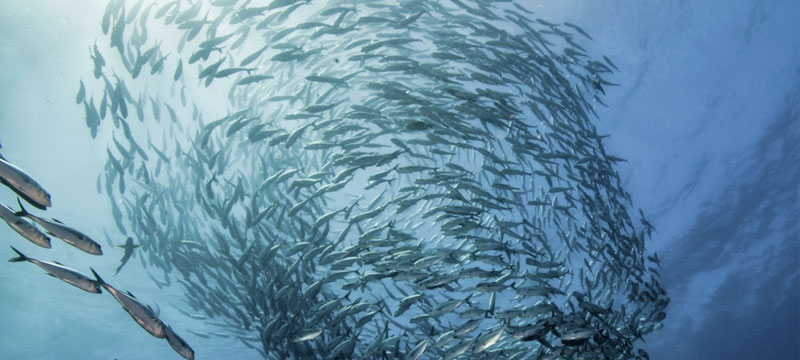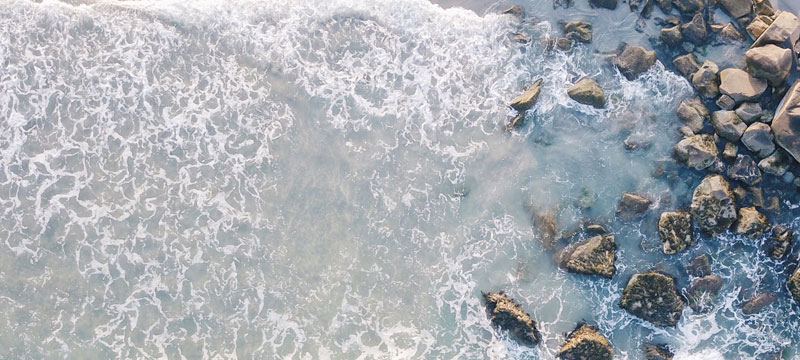Biomimicry: Providing a Framework for the Future

As I consider this new year, 2018, I wonder about the ocean agenda, its substance, momentum, and role as a solution to so many challenges faced by the world. We are living in a retrogressive political time, with a deliberate strategy for reversal, indeed, for the dismantling of the environmental progress we have made since the mid-1970s when individuals, organizations, and governments realized that indiscriminate growth in the name of consumption was despoiling the glories and utilities of Nature. We have come so far, only on the threshold of another year to understand that all that progress is to be willfully denied and subverted unless we stand up and resist in the name of ourselves, our communities, and our ensuing generations.
While reading this morning I came upon this thought: optimism is an ethic, not an attitude. I confess I had never thought of my personal bias toward the optimistic perspective was anything more than an innate condition. But this statement made me understand that it is more than just a world view, rather as a certainty with compelling moral dimension. The realization gave me both pause and strength as I continue to search for the framework by which to outline the shifts in value, structure, and behavior regarding the ocean, freshwater, and all the inherent derivative benefits for food, energy, health, security, community, and civil engagement among the peoples of the earth, indeed for the future of human survival. That is we do at the World Ocean Observatory: we advocate for the sustainable ocean through responsible science, cultural insights, education, and public engagement.

The framework I now believe is correct and logical is based on Life’s Principles as identified by the Design Lens of Biomimicry 3.8, an organization dedicated to “learning from the natural world for solutions, solved in the context of the earth-life’s genius.” What this vision does is provide an architecture for responding to our present situation by emulating natural processes as based on the following nine principles:
~ Nature runs on sunlight
~ Natures uses only the energy it needs
~ Nature fits form to function
~ Nature recycles everything
~ Nature rewards cooperation
~ Nature banks on diversity
~ Nature demands local expertise
~ Nature curbs excesses from within
~ Nature taps the power of limits
Each of these is a quiet but absolute contradiction of our past principles as constructed post-Industrial Revolution and the presumption that humankind is superior to Nature and can manipulate it at will through extraction, pollution, and exhaustion. Well, look where that has gotten us. We’re so smart that we have with premeditation and method poisoned our land, impoverished our population, and subverted our highest aspirational values by greed, inequity, and indifference. It is a sorry plight, and it’s time to reject this system categorically lest we put our entire being in jeopardy.
If you think about the Biomimicry Principles, however, you can sense an obvious path forward using the best of our hopes and achievements, though the power, efficiency, and right economy of the natural world — through the use of the sun, through limited consumption, through re-design of our questions and answers, through the re-cycling/re-use of everything we make, through cooperating not exploiting one another, through self-regulation of our unrestrained and subversive excesses, and through the understanding that limited growth in the name of sustainability is the way forward out of the historic morass in which we are now imprisoned into a world conducive to harmony and life.
What the Biomimicry Life Principles provide is a new vocabulary for us to understand the virtues of Nature that we can adopt as guidelines for adapting our bankrupt conventions to new convictions, organizations, and actions. As the World Ocean Observatory considers next steps for the ocean, we will do so within this new framework, relying on the ocean and her systems to lead us. And we will surely apply a tenth compelling Principle by asking: Is it beautiful?
- - -
PETER NEILL is founder and director of the W2O and is author of The Once and Future Ocean: Notes Toward a New Hydraulic Society. He also hosts World Ocean Radio, the weekly podcast addressing ocean issues, upon which this blog is inspired.
- Login to post comments
-


